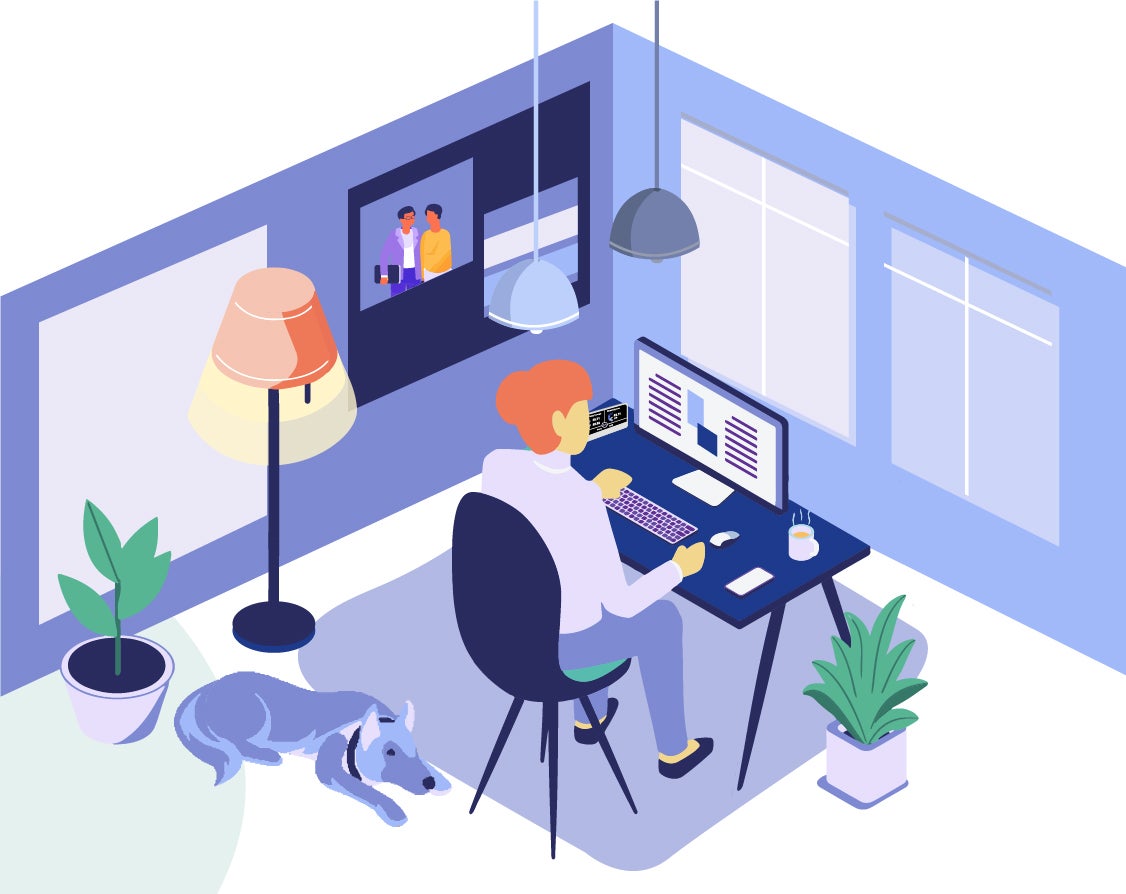
There’s been a strange paradox in the last twelve months that it might take a Greek philosopher to help us understand. What can Aristotle teach us about a year characterised by athleisure gear and endless takeaway deliveries? Well, Aristotle felt that time was a measure of change, and, as a result, the experience of it could be wildly varied. If you’ve found yourself finally catching up with friends in the last few weeks with a sense of disbelief that it’s been more than a year since you saw them last, then you’re experiencing this. So little change has happened in our private lives that time feels brief when we reflect on it. The paradox is that in the world of work the way we do our job has so fundamentally transformed that it feels like there’s been eight lifetimes change since last March. Most of us can remember Zoom calls that seem like they’ve lasted a month on their own.
Over the last few months, we’ve seen firms doing some of their thinking about work in public: mapping out what they think will be the most effective way for them to work - and to stay attractive to their employees. KPMG have just offered their workers a four-day fortnight (with four days in the office on days of their choosing), NatWest have said that only one in eight of their workers will be ‘office first’.
For the first time we are reflecting on optimising our home environment for both work and leisure. We need to consider the extra energy we are using powering laptops, having the lights on throughout the day and cooking lunch at home. And for those who can afford it this has been an opportunity to create dedicated spaces for working; the makers of shed/office hybrids have said they can’t keep up with the demand. For the rest of us it’s been a question of working out if we can improve our room set-up enough that we don’t spend the day breaking our backs on our bed. How can any of us make the way we’re working more survivable?
Create yourself a ‘Monk Mode’
We are all familiar with the back and forth of dealing with emails, chat messages and video calls. Microsoft say their users are spending two-and-a-half times as much of their week in meetings as before the pandemic and they say that the average chat message is replied to within five minutes. As a break from this, increasingly people are finding that carving out a dedicated time on their calendar is the best way to get some focussed work done. You might find that this works best as an uninterrupted sixty-minute block first thing in the morning or putting a line through a whole afternoon to get that spreadsheet in order but finding the peace and solitude of a monk might be the best way to make progress on your To Do list. Simply switching off your mobile phone and your emails will not only save you checking them every five minutes, it will also save you energy whilst you know you don’t need it. Get in ‘Monk Mode’ and focus.
Build in transition times between being Work You and Home You
Those who feel the most balanced in their remote working experience are generally the individuals who manage to get a bit of separation between their states of mind. If you don’t create mental divisions then conceivably every moment of doing nothing on the sofa suddenly looks like an interlude when you could be tackling that rampantly overgrown inbox. Your TV show goes to a break? I’ll just reply to Phil. Waiting for food to cook? I’ll get rid of those GroupOn offers that have been haunting my Gmail since three Christmases ago. Before you know it, you’re up-to-your waist in a ding-dong about next quarter’s marketing plans. Others have suggested that putting on a pair of shoes can transplant them to their professional mindset. For me, I like getting a run or walk to the coffee shop in before I transition my mind, crack my fingers and fire up the Zoom machine.
Rebecca Seal, author of Solo, told me she likes to pack all of her work kit away at the end of the day so there’s no hint of Post Its idling on the kitchen table. The act of unplugging the laptop not only saves on domestic energy use - which we all need to consider now we are working from home all day - but also serves to unplug your brain at the end of the workday, enabling a proper switch-off. And if you’re looking for even more of an incentive to set those work-life boundaries, getting a smart meter could help. Seeing how much energy you’re using could allow the Work You to save the Home You some mental energy, and maybe even some money, if you actually unplug more than just your laptop and your brain at the end of the day.
Don’t rule out phone calls
Over the last year or so we’ve become familiar with doing videos calls to each other and reading reactions on each other’s dimly lit faces, but evidence suggests that when we take the images away, we might find it easier to be candid with each other. A researcher at Carnegie-Mellon University in Pennsylvania found that we respond much better to audio than visual when we’re talking to people. Evidence suggests that we identify changes in sentiments and feelings far better when we’re talking to people on the phone. Interestingly this was matched by research into romantic couples who were able to keep their relationships going even when they were conducting a long-distance courtship - the ones who phoned each other every day seemed to have a higher rate of survival. Worth bearing in mind the next a Zoom invitation drops into your inbox.
